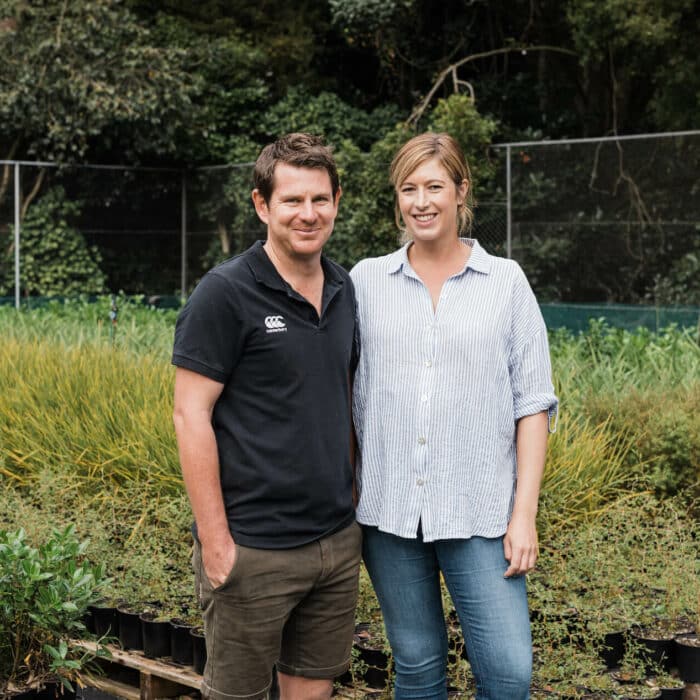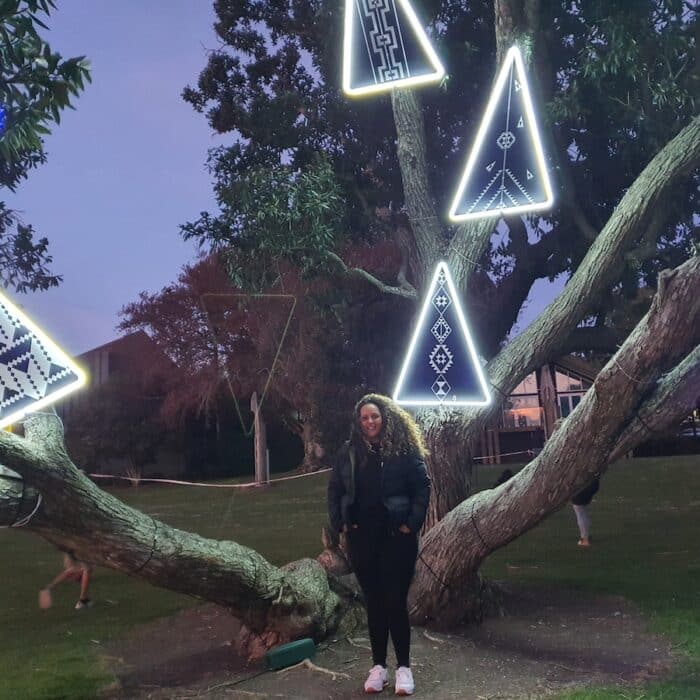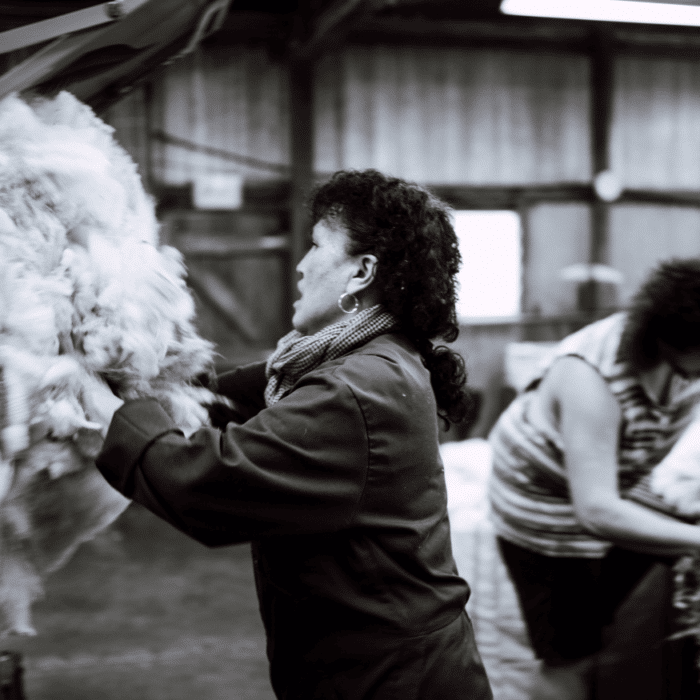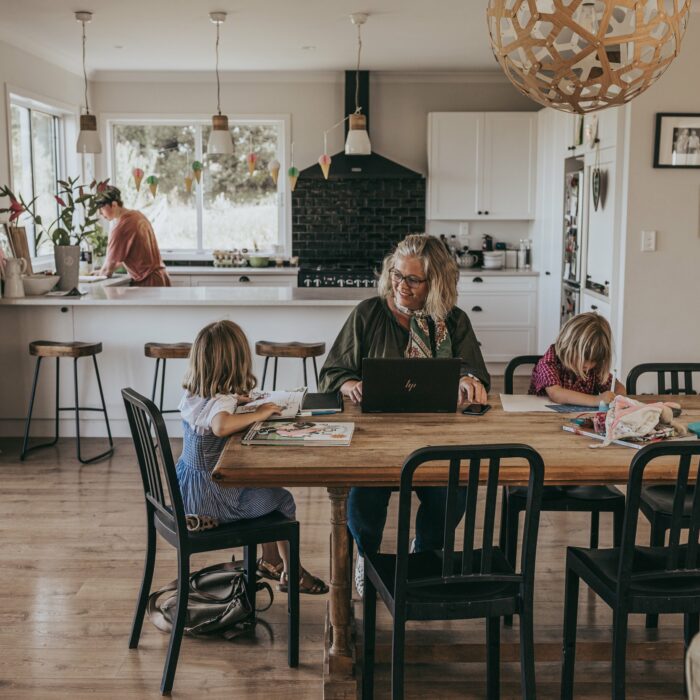
My dad was an accountant in a small rural practice in Te Kūiti, and Mum was a schoolteacher. We lived right on the edge of town and had a little lifestyle block – pet calves, ponies, sheep and, in the eighties goat craze, we had a little herd of goats. Even though Mum and Dad weren’t farmers, we spent a lot of my childhood out on farms, in the shearing sheds, in the hay paddocks, docking lambs. I did my summer in the shearing shed as a rousy. I feel at home around sheep and cattle. I had a really privileged upbringing, but being in a small town, my exposure was a bit [limited]. I knew I wasn’t orientated towards what I saw as being an “office job,” but it wasn’t until I actually went to university that I understood what other things were out there.
I did a bachelor of ag-science, and majored in business – agricultural marketing, international marketing, agri-economics. I finished that degree and I still didn’t know what I wanted to do. There was a vague notion of consulting, and I just didn’t see [myself] doing that. I went along to a Dairy Board consulting officer interview – to practice interviewing as much as anything – and got offered the job. So that was how I found myself in the dairy industry. I chose to go to the West Coast of the South Island. There were only four consulting officers in the South Island at that stage, and I was the first female on the West Coast. I was only twenty-two; I knew nothing. But there was this great guy, Tim Deane, who was there to support and guide us. He would help coordinate guests from Lincoln University, or international visitors, and I would just sit there with my notebook, writing and learning, and that would carry me through another month. I think that’s my trademark – I put my hand up, find myself somewhere, then I do my best to figure out how to do a good job of whatever it is I’m supposed to be doing.
The discussion groups had a community focus and the farmers were really committed to them. They appreciated my commitment to trying to turn up with something that was interesting and useful. We talked about stocking rate and calving date and really principle-based things. I didn’t realise at the time, but it was giving me good grounding in the fundamentals.
My current job is working with the farmer-facing team of Beef + Lamb New Zealand, helping farmers access information, expertise, research and science. We learn together and from each other to adapt and adopt new technology, different ways of doing things and regulatory change into farming systems.
I’ve been around farmers, professionally, for thirty years now. Like any industry, it’s just having enough experience that you understand the everyday realities. On one of the corporate farms, we had a big snowstorm. I took them hot food and went and fed calves for the day. Everybody was like, “This will bring back memories!” I just shook my head. I had a pet calf, but I’ve never reared calves en masse. It’s the ability to get in and have empathy and connect with the people, connect with the animals, connect with the land. I don’t think you have to be born into farming to do that.
I live again on a small block. I had four years in Wellington, which was fantastic, but I got claustrophobic and I needed to get back into a small community and rural living. My connection is animals. I have my horse; I have my dogs. Lifestyling doesn’t set you up to run a commercial farm, but it does work the other way.
We live and work in our homes and on our farms and they are one and the same. We’ve got employed teams or partnerships – you’re all living and working together and I think that’s a really challenging and interesting dynamic. Small country schools only work if people get involved, and that’s the real gold of rural communities. I don’t have children. I love living in small communities, but when you don’t have kids as the connector, it gives you a different lens. So I’ve always had voluntary roles. It’s about finding places in the community where you think you can add some value. You connect with people and community, and that’s what makes our world go around. A lot of professional women marry into farming. They’ve got a whole different worldview and skillset to offer; if we understand the value people bring and encourage skill- and time-sharing, that’s the opportunity for everybody to make our communities great places to live.
Farmers have the answers. Doing production research, uncovering new technologies and getting really great insights into key drivers of a business – I’ve found the farmers always have the answers of how to make that work. At Beef + Lamb New Zealand, they really place value on the farmer voice. That’s a founding principle here that everybody is engaged with, and that makes for a great organisation.
Related Stories
The short course full of “useful little gems” to help identify stress and prioritise wellbeing in yourself and others
Alice Trevelyan, 33, completed the ‘Know Your Mindset. Do What Matters’ programme with her husband, Dave.
Fiona Collis on Reaching Beyond Her Local Patch
Fiona is a fibre and textiles artist using traditional knowledge and practices handed down by her ancestors to experiment with traditional Māori textiles.
Esther Kidd
The twenty-five-year veteran and Leading Charge Hand with Spain and Smith Shearing Contractors lays out what it takes to get through a day, and what keeps her going.
Mastering the Juggle
Gretchen King runs a successful business delivering her farm recording app to clients nationwide, while also being a dedicated stepmum and mum to four children.
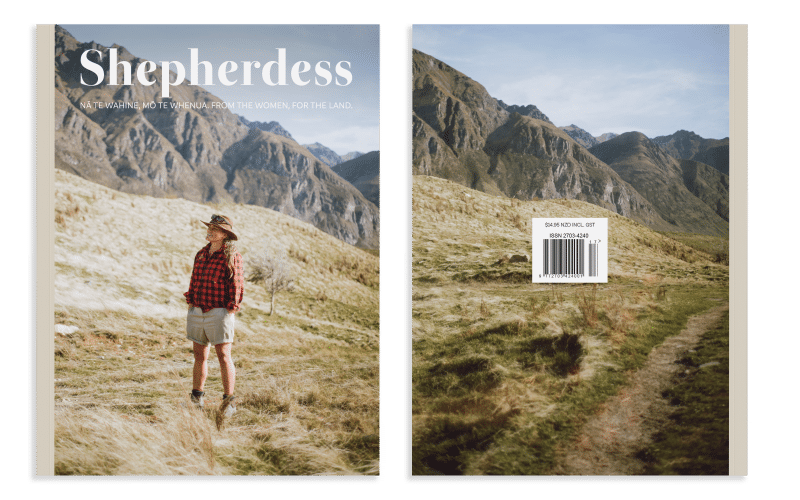
Out Now
Seventeenth Edition
Our beautiful Ngahuru Autumn 2024 Edition is out now!
